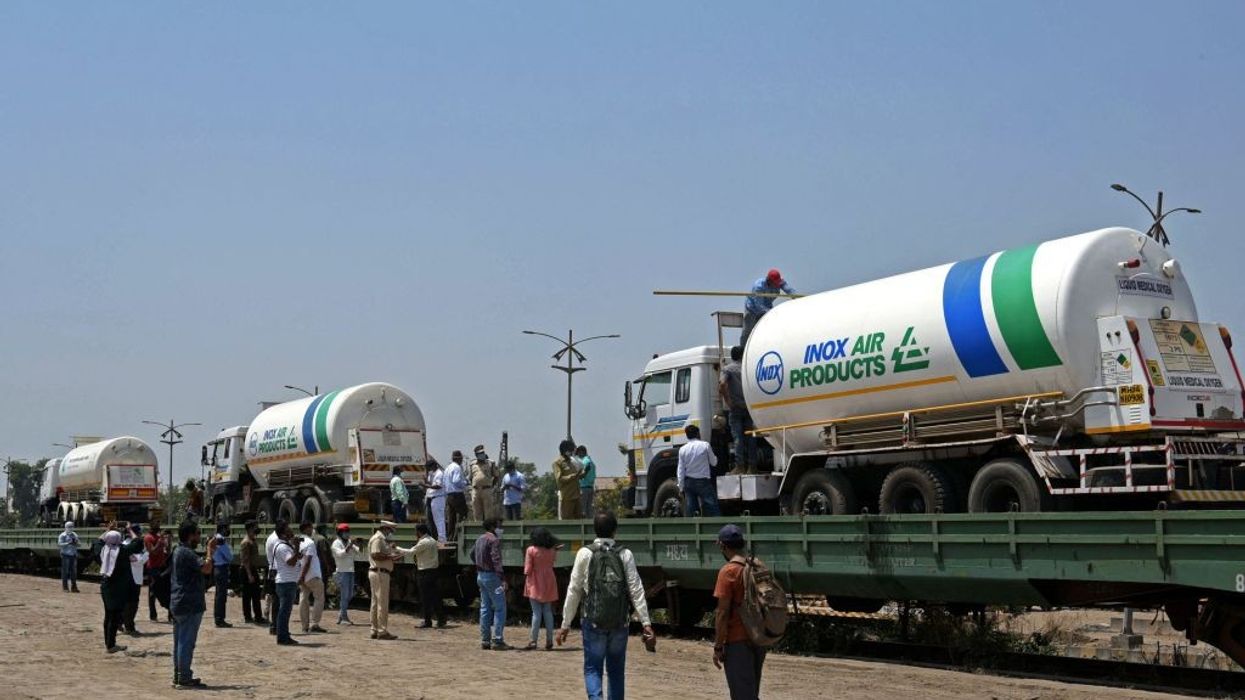INDIA will lock down its capital New Delhi for a week from Monday (19) night to try and control a raging coronavirus outbreak.
Infections are skyrocketing in India, however, with hospitals running out of beds and the government forced to reimpose economically painful restrictions again.
The Delhi lockdown came after the vast nation of 1.3 billion people reported a record high of 273,810 infections on Monday -- the fifth consecutive day of more than 200,000 cases.
Delhi chief minister Arvind Kejriwal said the capital's "health system is at a tipping point".
"If we don't impose a lockdown now, we will be looking at a bigger disaster."
Kejriwal said businesses would be shut and movement around the city of 20 million limited to essential services.
The restrictions followed similar measures in other parts of India, including in the western state of Maharashtra, home to financial capital Mumbai.
The surge has overwhelmed the healthcare infrastructure in many parts of India, and authorities are scrambling to free up hospital beds and secure additional supplies of oxygen and treatment drugs.
India has the world's second-highest caseload with more than 15 million known infections.
Health workers are bracing for yet another spike as millions of pilgrims attend a religious festival and ongoing regional elections draw huge rallies.
The UK government said Monday Prime Minister Boris Johnson's visit to India has been cancelled over the Covid-19 surge there.
1.4 million cases in a week
In the last seven days, India has recorded more than 1.4 million cases -- an increase of 64 percent on the previous week, according to data compiled by AFP.
Experts blame complacency about the virus, with the massive spike coming after daily cases fell below 9,000 in early February.
There is also growing concern that virus variants, including a "double mutant", are fuelling infections.
"The guard was let down too early... people went back to pre-pandemic behaviour and no one cautioned them," said virologist T Jacob John.
"The second wave's... spreading much faster than the first."
Experts warned that religious festivals, including the Kumbh Mela attended by millions of pilgrims, and packed state election rallies had become "super-spreader" events.
Following a call from prime minister Narendra Modi for its rituals to be observed symbolically, officials at the Kumbh Mela in the northern city of Haridwar said the "site is nearly empty".
Nearly 3,900 people have tested positive in the past week in Haridwar, according to local authorities.
"The main sects have withdrawn from the festival," said event official Harbeer Singh.
On social media, families pleaded for beds, oxygen and drugs. Local media reported long queues at crematoriums.
In Modi's home state Gujarat, crematoriums said bodies were being brought in numbers far higher than local Covid-19 death tolls.
"Two of our furnaces are not operational as the frames are melting and gas burners are getting clogged as the furnaces are constantly in use," said Prashant Kabrawala, the manager of Gujarat city Surat's biggest crematorium.
The coronavirus has killed more than 3 million people, devastating the world economy and upending daily life since emerging in China in late 2019.
The United States remains the hardest-hit nation, with more deaths and known infections than anywhere else, but it passed a major vaccine milestone on Sunday (18) with roughly 130 Americans -- half its adult population -- receiving at least one dose.





